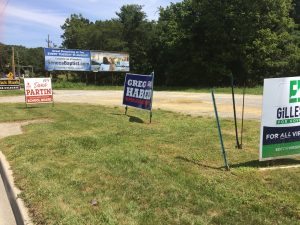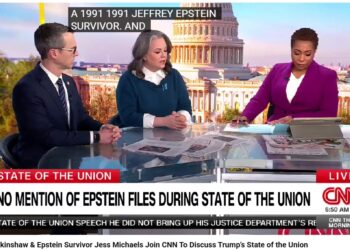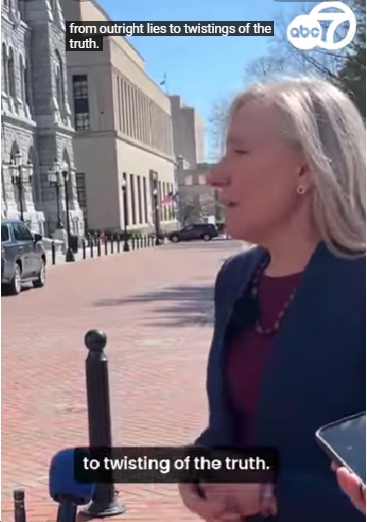
Although every candidate for the House of Delegates will appear on the ballot with a special letter by their name, committing them to one party or another, voters themselves (despite what many of them believe) do not register in Virginia with any party. And, although the General Assembly votes heavily along party lines, and seems in fact to mainly sponsor bills intended only to appeal to their own party, voters find many issues that they can agree on regardless of party. In fact, you can often spend ten minutes or more talking to a voter at their door, nodding your head in agreement with everything they say, without ever even finding out whether they vote with the same party as you.
Steve McBride and I headed out this weekend to a pretty neighborhood in Montgomery County, near Virginia Tech University, and knocked on some doors in this red district. Like many areas, the voter information (VAN) is somewhat unreliable, and missing for many residents altogether, so we just went to any house with cars in the driveway, or signs of anyone being home.
We had a nice, long conversation with a woman who just moved to the area from West Virginia. She talked about how bad the opioid crisis is in Clarksburg, and about that being a main reason she moved her family to Virginia. I suppose it’s somewhat likely she was a Republican, coming from West Virginia, but as she and Steve compared their fears and their ideas for how to solve this terrible crisis–mental health treatment and de-stigmatization, education, drug disposal programs–their respective party affiliations couldn’t have mattered less.
The same was true at the door of a woman who wanted to know not what Steve’s party affiliation was, but rather what his position on the ACP and MVP pipelines was. She had serious concerns about them because the karst soil in the area, which is full of sinkholes, is not supportive of heavy pipelines. Steve, being a scientist who has naturally been paying attention to the science of the pipelines, agreed. They discussed these pipelines not being needed, since we already have pipelines running at only partial capacity. Like concerns over the opioid crisis, opposition to the pipelines crosses party lines. These are issues that voters are ready for their representatives to find solutions to, and they don’t see why it should require one party or the other to have control of the legislature to get things done.
Finally, at our last door, we spoke to a voter who, without having revealed any party affiliation, asked the question that most candidates dread: “What do you think of the current administration?” Steve answered that he’s not running in Washington DC, he’s running in Virginia–to the extent that Trump’s actions harm Virginians, he’ll do everything in his power to fight them; if Trump’s actions help Virginians, he’ll support them. This is important–people who vote Republican in national elections do not necessarily do so in local elections, because there are different issues at stake. Many people support spending by local governments where they insist on greater fiscal responsibility at national levels. Or are willing to regulate issues at the local level where they do not support regulation at the national level.
She turned out to be a RINO. She’d “registered as a Republican because her father made her” when she first became old enough to vote. But she was no fan of Trump, was leaning strongly towards Northam, and was ecstatic to see Steve running for the House of Delegates. Our data listed her as a strong Democrat, based on her recent voting history. But I think there’s a silver lining to Trump winning last November (if you look desperately enough): we’re all assessing our relationship to our “party” and thinking hard about how far we’d let our party go in the wrong direction before we’d stand up and speak out. We’re also having these hard conversations at doors, and with our neighbors and friends–we’re cautiously moving from politics being one of the two things never discussed in polite company to politics being the most important thing to discuss.


















